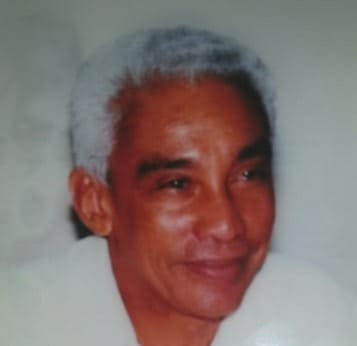Jamaican Scientists Win Int’l Awards
By: , February 26, 2021The Full Story
Two local scientists have won the prestigious International Network for Government Science Advice (INGSA) 2020 awards, making Jamaica the first country to take home prizes in the organisation’s two award categories in any one year.
They are Director of Research at the National Commission on Science and Technology (NCST), Dr. Judith Mendes, who received a Knowledge Associate grant, and internationally recognised expert on science and technology, Dr. Arnoldo Ventura, who received the Science Advice Essay Prize for Latin America and the Caribbean.
INGSA provides a forum for policymakers, practitioners, national academies, scientific societies, and researchers to share experience, build capacities, and develop theoretical and practical approaches to the use of scientific evidence in informing policy at all levels of government.
Dr. Mendes, who has worked in research and policymaking in multiple sectors and countries, received a €8,000 (J$1.4 million) grant to conduct a study entitled ‘COVID-19 Evidence-to-Policy Pathways in Jamaica, a Small Island Developing State in Economic Turnaround’.
The one-year study, to commence in February, will examine how scientific information on COVID-19 has informed policymaking in Jamaica. Dr. Mendes will present her findings at the INGSA Global Conference in 2022.
“The study will seek to understand Jamaica’s response to the COVID-19 pandemic and how science information was used in making that response. It is looking at the scientific information that was used to inform policy,” Dr. Mendes says.
As part of the research, interviews will be conducted with the major stakeholders involved in the formulation of these policies.
“I really hope the study will pave the way for improving our science advice infrastructure and overcoming this low-trust aspect to Jamaican society, because we need to build and strengthen the networks and bridges between scientists and policymakers,” Dr. Mendes says.
The research methodology will include documenting all publicly available policy actions taken by the Government and determining whether scientific information was used.
Dr. Mendes is among six researchers or public service policy professions who have received grants to undertake similar case studies on their country’s use of evidence in policy decisions related to COVID-19.
She tells JIS News that already, INGSA has collected data from 32 countries on the COVID-19 pandemic response.
“The idea is to build a good understanding in many other countries of how science advice was taken and used during the pandemic in order to inform what countries did right, what they did wrong and how people should give and get advice in the future,” she outlines.
Dr. Mendes is commending the Government of Jamaica’s response to the public health emergency, noting that its proactive and collaborative efforts with the scientific community have spared the country the worst effects of the pandemic, as has been seen in other countries.
“Jamaica has done a good job in listening to scientists about the pandemic and has instituted many policies that follow the science and, therefore, has protected many Jamaicans from the worst effects,” she says.
Meanwhile, Dr. Ventura won the INGSA Latin America and the Caribbean Science Advice Essay Prize for his work, entitled, ‘Primacy of Science Advice in The Small islands of the Caribbean’.

The essay distils some of his 50 years of experience promoting scientific evidence as the foundation for better decision-making in the Caribbean and improving the capacity of the region’s scientists to generate information needed by policymakers.
Dr. Ventura will present his award-winning essay at the Open Science Forum for Latin America and the Caribbean in Argentina in 2021.
He tells JIS News that, among other things, his presentation will also advocate for greater Caribbean representation in international science and technology bodies. “Winning this award means that the Caribbean must be specially recognised…,” he notes.
Dr. Ventura, who is an independent consultant on science and technology, says that evidence-based data is an essential component in informing policy for the development of small island states.
He says it is important for territories to collaborate in order to achieve sustainable development in the region.
“We are not a large science and technology community and we have to integrate our work to get to critical mass and that has to be under the umbrella of some type of science and technology advice to do so,” he emphasises.
Turning to the impact of the COVID-19 pandemic, he says the virus has clearly demonstrated the importance of science and technology in the modern world and the need for efficient, properly managed science and technology systems in Jamaica and across the Caribbean to drive virus control and recovery efforts.
“Science is what is being used to quell the pandemic; that is a given. To recover from the pandemic, science and technology is again going to be the most important ingredient,” he says, adding that Caribbean territories will need to innovate, make better use of resources, become more self-reliant and make better policy decisions.
Dr. Ventura, who is internationally renowned for promoting science and technology to alleviate poverty, is also a founding member of the NCST and the CARICOM Science and Technology Committee, and served as science and technology advisor to past prime ministers of Jamaica.
Notably, he is the first Caribbean professional to preside over the United Nations Commission on Science and Technology for Development (UNCSTD) in Geneva, and the first person to head, at the same time, both the UNCSTD and the Inter-American Committee on Science and Technology (COMCYT) of the Organization of American States (OAS) in Washington.
The role of the NCST is to promote the sustainable development and utilisation of local science and technology capabilities for competitive and profitable production through education of the populace, partnership of government, private sector, academic institutions and such other bodies or institutions.
INGSA provides the forum for policymakers, practitioners, national academies, scientific societies, and researchers to share experience, build capacities, and develop theoretical and practical approaches to the use of scientific evidence in informing policy at all levels of government.




